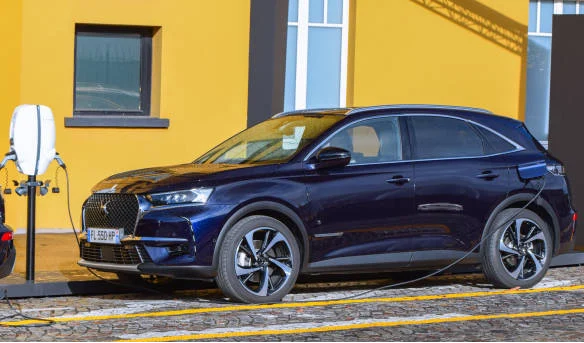Actually, whether or not one needs to charge his hybrid is not a simple no or yes. It highly depends on what type of hybrid energy vehicle you eventually choose. Let’s now go a little deeper!
Hybrid Vehicle-What?
The so-called Hybrid Vehicle is a sort of vehicle that combines the merits of an internal combustion engine and an electric motor, conventionally. They improve fuel efficiency and reduce emissions by intelligently switching between these two power sources.
The Major Classes of Hybrid Vehicles
- Conventional Hybrid Electric Vehicle (HEV)
Characteristics: No External Charging is required, due to the fact that the car itself charges the battery using its generator and regenerating system.
Applicable Scenario: It’s suitable for those who have no fixed charging facilities or aren’t willing to change the refueling habits.
- Plug-in Hybrid Electric Vehicle (PHEV):
Features: With the ability of external power charge, it can support larger battery capacity and longer pure electric distance.
Applicable Scenarios: PHEVs would suit car owners who have conditions to install home charging piles with moderate daily commuting distances.
- Extended Range Electric Vehicle (EREV)
Characteristics: Although it is of a type that can generate electricity using an internal combustion engine, the battery is normally supposed to be charged from an external power source for its maintenance at high efficiency.
Applicable scenarios: In cases where you want to feel as if you are driving a pure electric vehicle but do not want to have range anxiety, an EREV might be a better option for you.
How Hybrid Vehicles Charge
-External recharging methods for PHEV and EREV:
- a) Home charging: the common way is to charge during long periods of parking from home, especially at night, using normal outlets and/or dedicated charging posts,
- b) Public Charging Stations: As the infrastructure opens up for EVs in many cities, public charging is increasingly available with fast-charging services.
-Internal Charging methods mainly for HEV
- Regenerative braking: when the electric motor turns into a generator during deceleration or braking to recover kinetic energy and store it in the battery;
- Power generation by an internal combustion engine: the internal combustion engine assists in charging while driving to keep the electricity supply sufficient.
Hybrid Vehicles vs. Conventional Fuel Vehicles
– Fuel efficiency: They can run with much higher fuel economy, especially around town with its frequent stop-and-go traffic, thanks to the flexible switch-over from pure electric to pure fuel.
– Ecological characteristics: Hybrid cars reduce the level of exhaust gases emitted into the atmosphere, which makes the air cleaner compared to conventional fuel cars.
– Maintenance Costs: Other than routine engine maintenance, hybrid vehicles require attention to battery and electric system health, but most of these components are covered under extended warranty policies.
Advantages of Using Hybrid Vehicles
- Fuel cost savings: In particular, fuel costs will be greatly reduced, especially in short-distance commuting if full use can be made of electric drive.
- Greener: Hybrid cars have become more eco-friendly because the carbon footprint is low in these cars.
- Flexibility and Adaptability: Long-distance driving, traffic jamming in cities, Hybrid vehicles can automatically adjust the optimal combination of power in terms of the actual situation.
- Policy dividend: Vehicle purchase subsidies, tax incentives, and constantly improving charging networks in many countries and regions also support the development of new energy vehicles.
In a nutshell, every kind of hybrid vehicle may have different charging needs: HEVs do not require additional charging, but PHEVs and EREVs highly need regular charging to be at their best performance. Thus, one has to be clear about the habits of his car and the conditions of charging before heading out to purchase a hybrid car.

